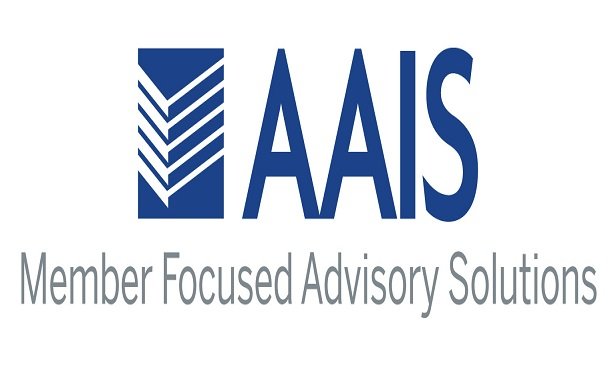The House passed legislation on Tuesday stating that the FederalReserve Board can apply insurance-based capital standards to theinsurance portion of any insurance holding company it oversees. Thevote was 327-97.
|However, the bill, the “Insurance Capital StandardsClarification Act of 2014,” H.R. 5461, carries baggage throughother provisions unlikely to be accepted by the Senate. This willlikely delay final legislative action on the clarification untilCongress returns to work in a so-called “lame duck” session afterthe mid-term elections.
|The Senate measure, S. 2270, “the Insurance Capital StandardsClarification Act of 2014,” would merely clarify that statutoryaccounting principles can be used by the Fed in overseeinginsurance companies.
|That bill would “revise” Sec. 171, the so-called “CollinsAmendment,” a provision of the Dodd-Frank financial services reformlaw. The Fed says its lawyers interpret the Collins amendment to“require” the Federal Reserve to apply bank capital rules toinsurance companies it supervises. The Senate bill was passed as aseparate through unanimous consent June 3.
|“This bill attaches three divisive measures that makesubstantive changes to the Dodd-Frank Wall Street Reform law to abipartisan, Senate-passed measure that makes technical changes tothe law,” said Rep. Maxine Waters, D-Calif., ranking minoritymember of the Financial Services Committee.
|Moreover, action on the bill in the last week Congress isexpected to be in session before the mid-terms makes virtuallycertain that the House will not act on legislation reauthorizing afederal backstop on terrorism risk.
|That increases the risk that the ultimate legislation enacted onTRIA reauthorization will impose greater liability for terrorismrisk on insurance that underwriters, insureds and rating agencieswill be comfortable with. That could lead to higher prices for theproduct as well as a decline in takeup rates.
|According to analysts at Washington Analysis, a buy-sidesecurities analytical firm, unlike the Senate measure, the Housebill would expand exemptions for bank ownership of collateralizedloan obligations (CLOs) under the Volcker Rule, as well asmarginally expand the definition of a Qualified Mortgage(QM).
|“These additional provisions could jeopardize the ability of theSenate to approve the package with unanimous consent (a requirementif the bill is to pass into law this week), as it only takes asingle Senator to oppose the measure and derail fast-trackapproval,” the analysts said.
|The measure was sponsored by Reps. Andy Barr, R-Ken., GaryMiller, R-Calif., Bill Huizenga, R-Mich., and David Scott,D-Ga.
|“The legislation passed today makes it clear that the Fed shallapply capital standards appropriate to insurers and must accept theStatutory Accounting Principles used by state regulators to overseeinsurance companies,” said Jimi Grande, senior vice president offederal and political affairs for the National Association ofMutual Insurance Companies.
|Nat Wienecke, senior vice president, federal governmentrelations at the Property Casualty Insurers Association of America(PCI), said that, “While the Federal Reserve Board has actedprudently in delaying imposition of bank capital standards oninsurers until Congress can clarify the situation, “the potentialburdens if not addressed would harm consumers and job growth.”
|Leigh Ann Pusey, president and CEO of the American InsuranceAssociation, said, “Insurers operate under a fundamentallydifferent business model that requires different financialregulatory standards. The model, which is already supported byinsurance financial regulation, largely isolates insurers from runson the institution.”
|Charles Symington, senior vice president of external andgovernment affairs for the Independent Insurance Agents and Brokersof America (IIABA), considered the House action to be acommon-sense solution to a technical issue within Dodd-Frank.
|“The IIABA has long supported the premise that banking andinsurance are different and therefore should have distinctregulatory standards. We appreciate the House vote on thislegislation,” Symington said.
|The provision at issue in the DFA was sponsored by Sen. SusanCollins, R-Maine, as Congress acted to strengthen insurancesupervision in the wake of the catastrophic failure of AmericanInternational Group.
|It would impact insurers such as American International Groupand Prudential Financial that have been designated as systemicallysignificant financial institutions (SIFI), and perhaps MetLife,which has been preliminarily designated a SIFI.
|It also impacts mutual insurance companies such as State Farmand USAA which the Fed oversees as their consolidated regulatorbecause they operate savings and loan holding companies (SLCC). Itdoes so by preventing the Fed from making them prepare financialstatements in accordance with generally accepted accountingprinciples, when they are already preparing financial statements inaccordance with state-based statutory accounting principles.
Want to continue reading?
Become a Free PropertyCasualty360 Digital Reader
Your access to unlimited PropertyCasualty360 content isn’t changing.
Once you are an ALM digital member, you’ll receive:
- All PropertyCasualty360.com news coverage, best practices, and in-depth analysis.
- Educational webcasts, resources from industry leaders, and informative newsletters.
- Other award-winning websites including BenefitsPRO.com and ThinkAdvisor.com.
Already have an account? Sign In
© 2024 ALM Global, LLC, All Rights Reserved. Request academic re-use from www.copyright.com. All other uses, submit a request to [email protected]. For more information visit Asset & Logo Licensing.








